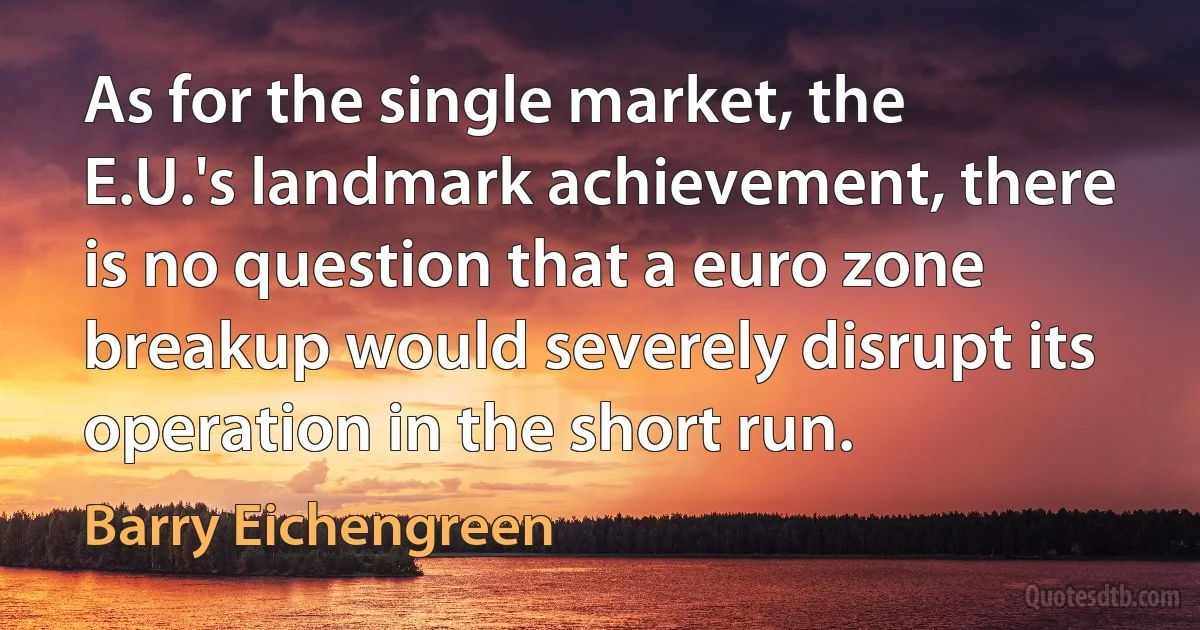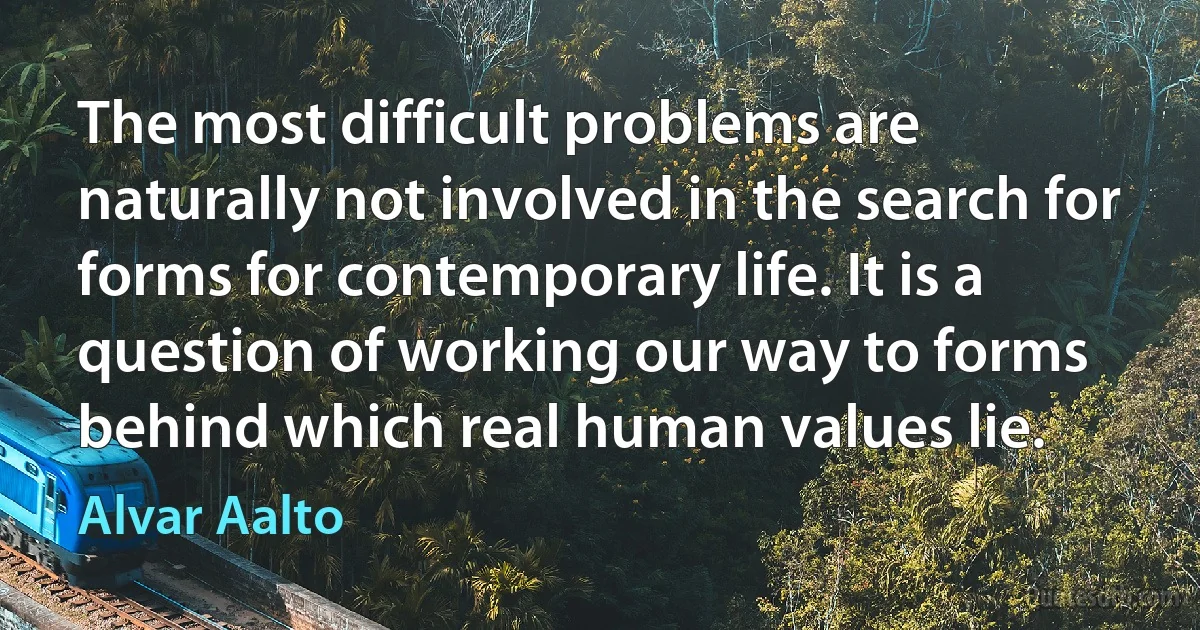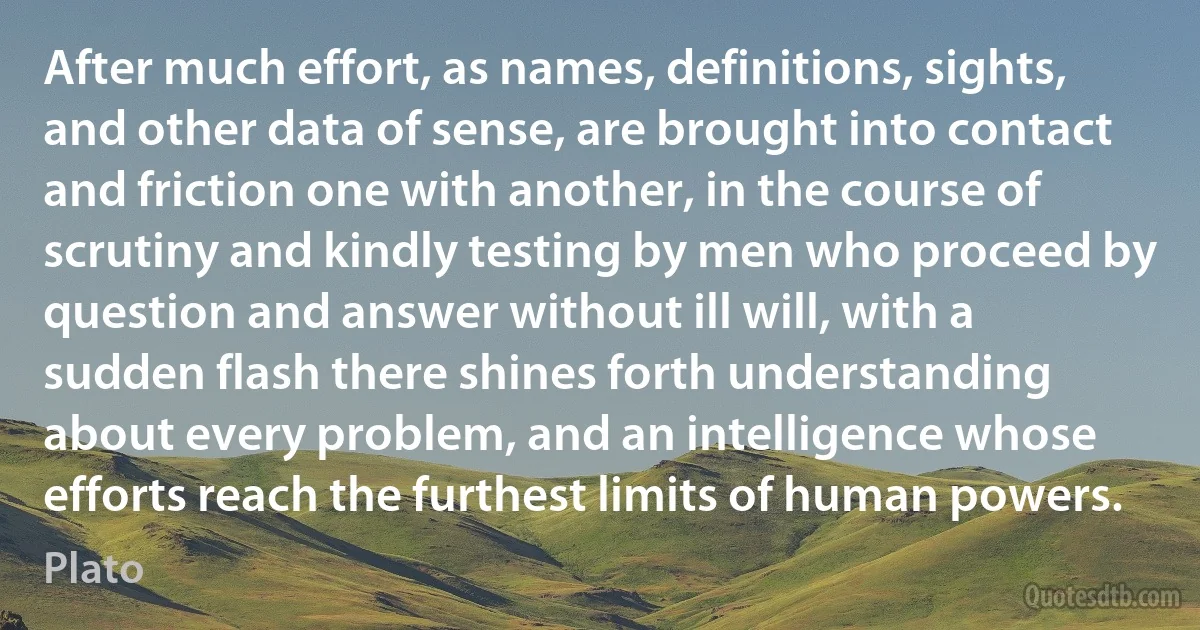Question Quotes - page 94
Is the position tenable, that certain phenomena, possible in Euclidean space, would be impossible in non-Euclidean space, so that experience, in establishing these phenomena, would directly contradict the non-Euclidean hypothesis? For my part I think no such question can be put. To my mind it is precisely equivalent to the following, whose absurdity is patent to all eyes: are there lengths expressible in meters and centimeters, but which can not be measured in fathoms, feet, and inches, so that experience, in ascertaining the existence of these lengths, would directly contradict the hypothesis that there are fathoms divided into six feet?

Henri Poincaré
We like to picture to ourselves the field of law as accurately mapped and plotted. We draw our little lines, and they are hardly down before we blur them. As in time and space, so here. Divisions are working hypotheses, adopted for convenience. ... So also the duty of a judge becomes itself a question of degree, and he is a useful judge or a poor one as he estimates the measure accurately or loosely. He must balance all his ingredients, his philosophy, his logic, his analogies, his history, his customs, his sense of right, and all the rest, and adding a little here and taking out a little there, must determine, as wisely as he can, which weight shall tip the scales.

Benjamin N. Cardozo
It has been said that the people of this country are deeply interested in the humanitarian and philanthropic considerations involved in [the Eastern Question]. All must appreciate such feelings. But I am mistaken if there be not a yet deeper sentiment on the part of the people of this country, one with which I cannot doubt your lordships will ever sympathise, and that is-the determination to maintain the Empire of England.

Benjamin Disraeli
Apparently the rise of consciousness is linked to certain kinds of privation. It is the bitterness of self-consciousness that we knowers know best. Critical of the illusions that sustained mankind in earlier times, this self-consciousness of ours does little to sustain us now. The question is: which is disenchanted, the world itself or the consciousness we have of it?

Saul Bellow
[About the Swiss] The nice Germans, Yeah. Or as they like to say, the other white race. Now, I have only one question. How can you trust an army, how butch is an army that has a wine opener on its knife? "Many of you have never opened Chardonnay under fire! First, you pull the cork out, sniff it, say, 'Meat or fish?', and throw! (Military cadence) I don't know, but I've been told, Chardonnay must be served cold! Ja!"

Robin Williams
We can see that in putting the question "what is man?" what we mean is: what can man become? That is, can man dominate his own destiny, can he "make himself," can he create his own life? We maintain therefore that man is a process and, more exactly, the process of his actions. If you think about it, the question itself "what is man?" is not an abstract or "objective" question. It is born of our reflection about ourselves and about others, and we want to know, in relation to what we have thought and seen, what we are and what we can become; whether we really are, and if so to what extent, "makers of our own selves," of our life and of our destiny. And we want to know this "today," in the given conditions of today, the conditions of our daily life, not of any life or any man.

Antonio Gramsci
The necessity for leaders to possess optimism and ego serves to answer the age-old question: Are leaders born or are they made? They are born. A leader is born with an optimistic disposition or she is not. If she is not, then no amount of "optimism training" is going to make her view the world in an overwhelmingly positive, opportunistic light.

Marcus Buckingham
I know this is the question period, but there's a quote here which is just so relevant. I hope I can - I hope I can read it. It's from an article by, uh, Yossi Klein Halevi on Pesach Jews versus Purim Jews. So he talks about these - there's these two threads, these two strands among - among - among Jews in - actually, there's more in Israel. But it's here, too. So he - I just love this, and it fits so well with - with - with The Righteous Mind. He says, uh, Jewish history speaks to our generation in the voice of two Biblical commands to remember.

Jonathan Haidt
The mortal sin of the Second International was not that it pursued at that time the tactics of utilising parliamentary forms of struggle, but that it overestimated the importance of these forms, that it considered them virtually the only forms; and that when the period of open revolutionary battles set in and the question of extra-parliamentary forms of struggle came to the fore, the parties of the Second International turned their backs on these new tasks, refused to shoulder them.

Joseph Stalin
You [Albanians] are a separate people, just like the Persians and the Arabs, who have the same religion as the Turks. Your ancestors existed before the Romans and the Turks. Religion has nothing to do with nationality and statehood... the question of religious beliefs must be kept well in mind, must be handled with great care, because the religious feelings of the people must not be offended. These feelings have been cultivated in the people for many centuries, and great patience is called for on this question, because the stand towards it is important for the compactness and unity of the people.

Joseph Stalin



